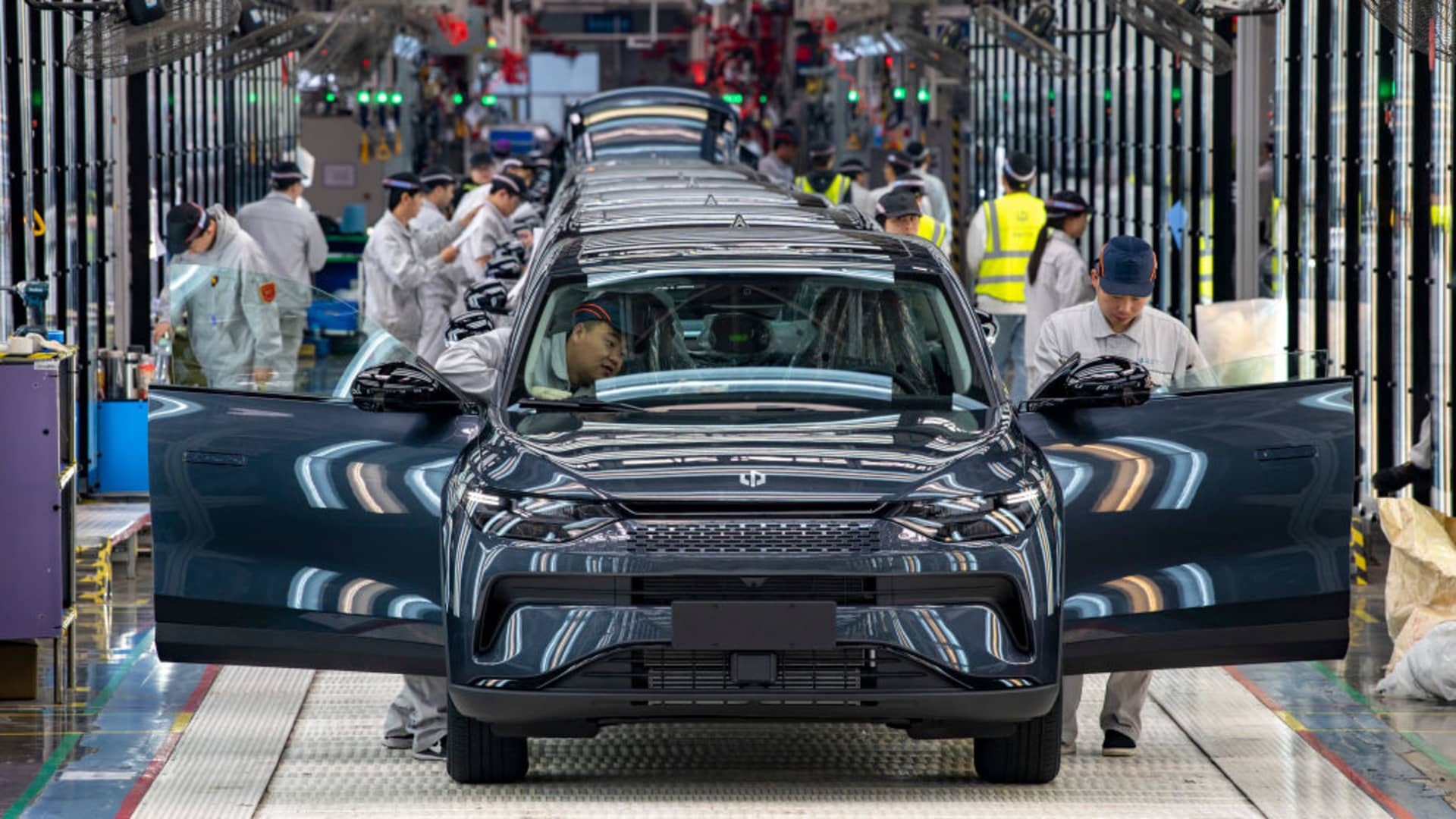- China currently dominates the electric vehicle, battery, and critical metals industries.
- However, other countries, such as Australia, India, and the US, have started pushing back against Chinese investment in these industries.
- There is suspicion and concern about Chinese EV companies in countries like France, which is calling for an investigation into unfair subsidies by the Chinese government.
- This could potentially lead to new tariffs on Chinese EV imports to the EU.
- China's recent actions, such as threatening to curb exports of important materials and banning coal imports from Australia, have further fueled concerns about dependence on China.
The article discusses the potential for the West to use China's economic slowdown to gain an advantage in the electric car race, highlighting the need for a different approach to counter China's advantage. The author suggests welcoming Chinese investment and immigration of skilled Chinese scientists to strengthen the American EV industry and potentially weaken China.
Chinese companies have increased their presence in cutting-edge materials and electric vehicles, making it challenging for other countries to reduce their dependence on Chinese supply chains, despite protectionist measures.
European car manufacturers face an unwinnable battle with China as the EU proceeds with its ban on petrol cars, according to the CEO of BMW.
Europe's carmakers are facing a tough battle to catch up with China in the development of affordable and consumer-friendly electric vehicles, with Chinese EV makers already a generation ahead, according to industry analysts and executives at Munich's IAA mobility show.
The EU's plan to ban new gasoline and diesel vehicles by 2035 poses a significant risk to European car manufacturers who may struggle to compete with Chinese EV manufacturers in a price war, according to BMW chairman Oliver Zipse.
China's automobile and component exports have doubled in 2021, leading to an investigation by the European Commission into subsidies given to Chinese electric vehicle makers, as European automakers express concern over competition from China in the growing electric vehicle sector.
Tesla is expected to benefit from European protectionist measures as regulators crack down on Chinese electric vehicle (EV) competition, causing stocks of Chinese EV companies like NIO and XPeng to plunge.
The European Commission has launched an investigation into whether to impose punitive tariffs on Chinese electric vehicle (EV) imports that it considers to be benefiting from state subsidies, as the Chinese share of the European EV market has reached 8% this year.
The European Union is investigating China's state support for electric vehicle makers due to concerns about the impact on European auto manufacturers, with Chinese companies already gaining a substantial market share in Europe through cheaper prices and subsidies.
China has urged the European Union to ensure that its proposed carbon border adjustment mechanism complies with World Trade Organization rules and does not create protectionist measures or green trade barriers.
The European Union's increasing scrutiny of Chinese electric-vehicle companies has caused tension between the two, impacting the EV space and EU-China relations.
German carmakers are concerned about potential retaliation if the EU imposes duties on Chinese electric vehicles, according to German Economy Minister Robert Habeck, who also acknowledged a Franco-German divide over the anti-subsidy probe.
The European Automobile Manufacturers’ Association is urging the EU to scrap plans for 10% tariffs on electric vehicle manufacturers who do not source all their parts from within the bloc and Britain, warning that this could result in a £3.7bn cost and drive up consumer prices.
Former President Donald Trump is attacking President Biden's push for electric vehicles, claiming they threaten blue collar livelihoods and that all EVs will be made in China, using this issue to try to win over auto workers and swing-state voters for his potential 2024 presidential campaign; however, EVs are not a hoax and are increasingly affordable and viable, helping to cut carbon emissions and address global warming.
The European Commission has launched an investigation into Chinese electric vehicle subsidies, which will be fact-based and conducted in accordance with EU and WTO rules.
The EU's chief trade negotiator, Valdis Dombrovskis, expressed concern about European businesses in China due to tough security laws and a politicized environment, while also highlighting the EU's assertive actions against Chinese subsidies for electric vehicles; this signals a fraying in business ties between the EU and China, potentially leaving everyone worse off.
China's commerce minister expressed dissatisfaction with the European Union's decision to launch an anti-subsidy investigation on China's electric vehicles, calling it a protectionist act that will affect China-EU green cooperation and the global automotive industry.
European regulators are investigating subsidies given to Chinese automakers that may be affecting European companies, including Tesla, but investors do not appear concerned.
The European Commission has initiated an anti-subsidy investigation into Chinese electric vehicles, which could potentially lead to the imposition of tariffs on imports from China within the next 13 months.
The European Commission has opened an investigation into China's electric vehicle sector, citing evidence of subsidies that could harm the EU industry and potentially result in import duties on vehicles from China.
The European Union is reportedly planning to announce anti-subsidy investigations against Chinese steelmakers at a summit with the U.S., in an effort to shield industries from cheap competition and avoid the re-imposition of Trump-era tariffs on EU steel.
The European Union is reportedly planning to launch anti-subsidy investigations into Chinese steelmakers at a summit with the US, as part of efforts to protect industries from cheap competition.
